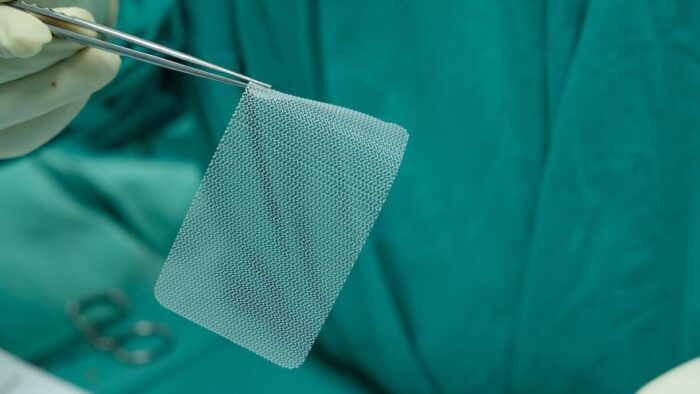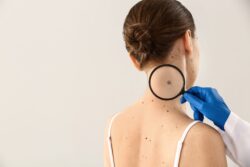Worried About Hernia Repair Surgery? Here Are Some Common Concerns and Ways to Relieve Your Mind as You Prepare for Your Procedure
Surgery is scary. There’s no way around it. There’s anesthesia to worry about, as well as scalpels and incisions, discomfort, and downtime. No one looks forward to any of that. However, surgery can be a very beneficial thing for many people, especially if they are suffering from a cosmetic or medical condition. Yet, even with the knowledge that surgery can help alleviate pain, the idea of “going under the knife” can cause many people to worry. And while there are reasons to be nervous, these reasons should not be enough to keep a patient from becoming healthier and happier from a corrective surgery.
Hernia surgery is one such procedure that can be very daunting for patients, especially because of the location of many hernias (in or around the groin). However, hernia surgery can relieve pain and discomfort while allowing you to return to your normal, daily activities so that you can begin to enjoy every aspect of your life again!

What Is a Hernia?
A hernia refers to any instance when an internal organ pushes against the wall of muscle or tissue that holds that muscle. This often creates a bulge in the muscle or tissue and can result in pain and discomfort. One of the most common types of hernias are those that involve the intestine and abdominal muscle. Hernias can cause various levels of pain, depending on the location and extent of the hernia.
How Is Hernia Surgery Performed?
At Patrick Moore, MD, FACS, Dr. Moore performs hernia repair surgery with Robotic-Assisted Laparoscopic Surgery, which involves making three small incisions in the lower abdomen to insert a laparoscope, which is a tiny camera attached to a thin tube. This allows Dr. Moore to see inside your body as he corrects the hernia. Once Dr. Moore finds the area where the hernia is bulging through the weakened muscle, he will place mesh to strengthen the wall and surrounding tissue.
Common Concerns for Hernia Surgery
Hernia repair surgery is a common operation for Dr. Moore, who is skilled with laparoscopic procedures to correct both hernias and gallbladder issues. So, you can trust that you are in capable hands with your surgeon. Still, many patients worry about many different aspects of the procedure. Below are some of the most common concerns that patients have as well as information to help calm your mind.
Pain
One of the reasons that you are undergoing hernia repair surgery is because of the pain you experience from the hernia itself. This means that hernia repair surgery is meant to correct pain rather than cause it. Dr. Moore usually uses intravenous sedation to ensure that his patients don’t feel any discomfort or pain during their procedure. While you may experience some tenderness and discomfort after the procedure, these side effects will dissipate within a few days, and prescription or over-the-counter medication can be taken to relieve any pain you may feel.
Infection
One of the most common concerns for any surgical procedure is infection, and that’s because infection can be a very serious problem. However, Dr. Moore is dedicated to keeping his patients’ health and safety first. Additionally, you will be prescribed antibiotics to help ward off any infection during the days after your procedure.
Recurrent Hernia
No one wants to undergo a surgical procedure just to have to do it all over again in the future. And while this is absolutely true about hernias, the reality is that there is a chance that a hernia can come back after months or even years. However, this is not common (less than 10%). And if your hernia does return after being corrected, Dr. Moore will make sure to treat your recurrent hernia with the same care and dedication as your first hernia procedure.
Blood Clots
There’s no question about it: blood clots are dangerous and can be fatal. While Dr. Moore does everything possible to ensure that you do not experience any clotting during your procedure, it is important that you follow all post-op instructions to keep yourself healthy and clot-free after your surgery. One of the best ways to keep your blood from clotting is light exercise during your recovery. Short, slow walks and light stretching can help keep your blood circulating throughout your body and minimize any chance of blood clots.
The Recovery Period
Any surgical procedure will require a recovery period. During this time, you will need to rest and allow your body to heal. It is common for patients to want to rush this period, but it is so important that you allow your body the recovery it needs. Making sure that you are prepared for your recovery (food prep, making sure you have someone to help around the house, and organizing a comfy place for you to rest in) can help your recovery period go by in a breeze. It is important to listen to your body as you recover, and this means not engaging in any strenuous activities until your are cleared to do so by Dr. Moore.
For more information about hernia repair surgery, please contact Patrick Moore MD, FACS by calling 951-477-5700.




